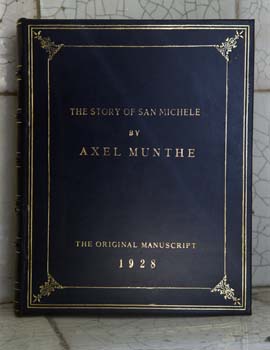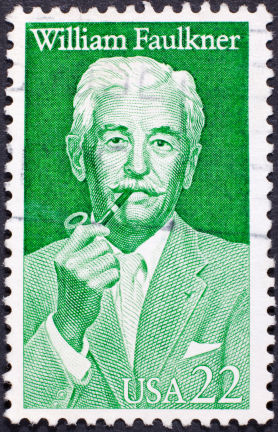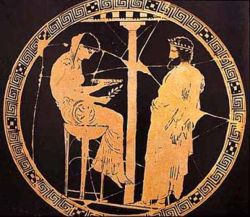
Image: ABC Tasmania
[Written in 2003, this is the 2nd part of the story of a remarkable connection. You’ll need to read
part one for the set up.]
For the last seven years, I’ve kept a web page full of people’s email about street scams they’ve been involved in (as victims) in Barcelona.
In the beginning I just wrote down brief descriptions of things that I saw or was involved in soon after moving to Spain. I’d seen hardly any street crime in my (then) 33 years and I found it fascinating to watch for. It certainly wasn’t hard to find. Often it came right to my door or to the street under my balcony. Before long I began to receive email from others who had visited or lived in Barcelona, each with their own story to tell. I put the stories onto the web page and they soon outnumbered my own. I continue to receive a few emails a month from people who’ve read the web page (generally after being robbed, though sometimes before leaving on a trip). I don’t often reply to these emails, apart from a line or two to say thanks when I put their messages on the web page, often months after they mail me.
For whatever reason, I’ve never been very interested to meet these people, though I’ve had plenty of chances to. In general I don’t seem to have much interest in meeting new people – it’s quite rare that I do. I should probably be more sociable (or something) because once in a while the consequences are immediately extraordinary.
Among my email, I get occasional contacts from people in the tourism industry. Lonely Planet, Fodor’s, people writing books or running travel services or web sites. Mainly they want to know if they can link to the web page, or to use some of the content in their own guides. I always agree without condition. After all, the main (but not the only) point is to help people be more aware, and besides, the majority of the content was written by other people who clearly share the same advisory aim. With this attention from various professionals who are trying to pass on the information, I began to wonder how many such people there were. Maybe there were other people with web sites devoted to street crime. So once in a while I’d do a web search on “street scams”, or something similar, just to see what came up. It’s usually interesting.
On July 30th 2001, I went looking around for similar web sites and ran across Bob Arno. I took a quick look around and fired off an email to say hello, and offered to buy him a beer the next time he was in Barcelona:
Hi Bob
I was just having a wander around the web when I ran into your
pages about pickpockets. They look good, very useful.
You might be interested to see a page of my own: http://jon.es/barna/scams.html
All about things that have happened to people in Barcelona. It's
not too well organized, but there's a lots of it. Most of it falls
into well known classes of petty crime. Things are getting worse
here, with the most recent tactics being strangulation from behind
and squirting a flammable liquid onto people's backs and then, you
guessed it, setting them on fire.
Let me know next time you're in Barcelona and I'll buy you a
beer. I'm also in Manhattan very often.
Regards,
Terry Jones.
Bob looked very interesting, and we seemed to have the same point of view on street crime. He’s a seasoned professional, a Vegas showman, and is constantly traveling the world studying many forms of crime and passing on his knowledge. Check out his website.
I sent mail to Derek, passing on Bob Arno’s URL. I said a little of how funny and random it seemed to me, of how over all the years of doing different things and meeting any number of famous and high-powered academics and intellectuals etc., and not really having much interest in any of them, that I’m sending email to this Bob Arno guy suggesting we meet up.
The next day I read more about Bob’s exploits and interests and I guessed that we would probably get on really well. I sent off a longer email with some more of my observations about Barcelona:
Hi again.
I sent off that first email without having looked at more than a
page or two of your web site.
It's very interesting to read more. I spend far too much time
thinking about and watching for petty thieves in Barcelona. I've
thought about many of the issues touched on in the interview with
you by your own TSJ. The whole thing is very intriguing and lately
I've begun to wonder increasingly what I can do about it, and if I
want to do anything about it. I have tended to act to try to stop
pickpockets, but I've also seen things many times from a distance
or a height, read many things, seen freshly robbed people weeping,
talked to many people who have been robbed, thought of this as an
art (I'm interviewed in a Barcelona newspaper under the headline
"Some crimes are a work of art" - I'm not sure if they understood
what I meant), etc. I've never tried filming these people. But I
know how they look at you when they know they have been spotted,
how their faces look when the wallet hits the floor, how they prey
on Western or "rich" psychology, and so many other things. My
focus has been Barcelona, after coming to live here 5 years ago
and (at that time) having an apartment 1 floor up about 100 meters
from Plaza Real. If I had had a net I could have caught people
several times a day.
I recently got a video camera and was thinking of interviewing the
woman on my web site who was strangled here earlier this month. By
the way, the papers reported up to 9 cases of such stranglings in a
single day. I wasn't quite sure what to do with the tape. It hadn't
occurred to me to film the thieves, but it would be so easy. In
Barcelona it's trivial to spot these people, and also feels very
safe since many of them have been arrested literally hundreds of
times. There is basically no deterrent. There are undoubtedly more
sophisticated pickpockets here too, but there is little in the way
of evolutionary pressure to make them improve their methods. The
tourists are too many and too unaware, the police are too few, and
the laws are too slack. Why would you even bother to improve or
think?
I also know the boredom that comes with professional acts. I used to
do a lot of juggling and unicycling, practicing 6 hours a day for a
long time. But I could never stand to have a canned show that I did
time after time - it was just too routine to have a routine. So I
refused and eventually drifted into other things.
How can I get a copy of your book? It doesn't seem to say on the web
site. Also, the menu of links at the top left of your pages looks
extremely garbled under my browser (Opera).
Terry
As it turned out, my timing was perfect. I got a mail back the next day from Bob’s wife Bambi (yes, really). She said they’d be in Barcelona in just 5 days time and that they’d love to meet up.
And meet up we did!
They came to our apartment and we all hit it off immediately. As I’d thought, we did have a lot in common, both in terms of what we had done and in outlook. They told me they also get lots of email through their web site and hardly ever reply. Ana and I took them out for food. We sat outside at the nearby Textile Museum. Later, Ana went home to look after Sofia, and I stayed with Bob and Bambi. In the end I was with them about five hours and I had a really good time. We arranged to meet the next day to go hunting for thieves on the Ramblas. In one sense, “hunting” isn’t at all the right word: the thieves are typically very obvious to anyone who’s actually paying attention. But there’s a lot of subtlety in tracking and filming them, so it really is something like a hunt. I’ve since spent many hours, on several occasions, in action with Bob and Bambi in Barcelona. But that’s another story.
After getting home that first night, I went back to Bob’s web site and read more of his pages. He’s had a pretty colorful life. Actually, it’s extraordinarily colorful by almost any measure. “Who is this Bob Arno?” I wondered. Fortunately, Bob has a “Who is Bob Arno?” page, which I finally got around to reading.
Halfway down… unbelievable… I want to cry.
Born in Sweden, Bob Arno is a great-grandson of Dr. Axel Munthe,
who is most famous for his novel The Story of San Michele.
Patricia Volterra was my great aunt.
 From Tacitus, on the eventual rise of Claudius to Roman emperor, from The Annals of Imperial Rome (Penguin Classics, p127):
From Tacitus, on the eventual rise of Claudius to Roman emperor, from The Annals of Imperial Rome (Penguin Classics, p127):







